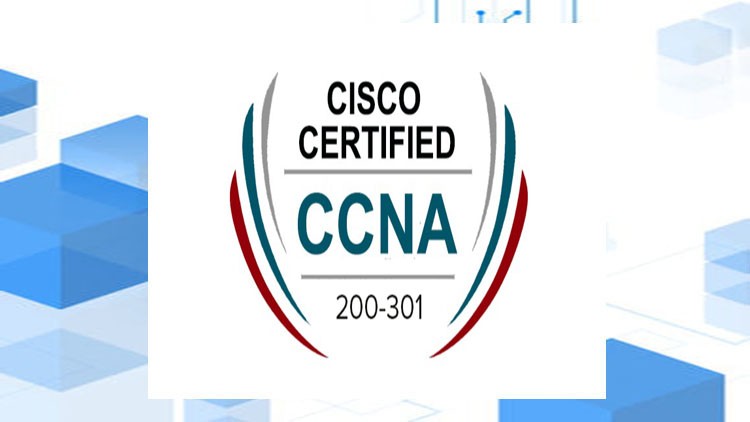What
You’ll Learn
You’ll Learn
- Understand Networking Fundamentals
- Configure and Manage Network Devices
- Implement Network Security Principles
- Understand IP Services and Automation
Requirements
- Basic Understanding of Computer and Network Operations
- Familiarity with Basic Command Line Interface (CLI)
Description
“This practice exam consists of 6 sections, each containing 120 questions, covering all the topics included in the certification exam.”
Course Overview
The Cisco Certified Network Associate (CCNA) 200-301 v1.1 course provides a comprehensive foundation in networking fundamentals and prepares students for the Cisco 200-301 CCNA certification exam. This certification is highly regarded for its broad coverage of networking skills, addressing key concepts such as network fundamentals, network access, IP connectivity, IP services, security fundamentals, and automation and programmability.
Learning Objectives
By the end of this course, participants will be able to:
-
Understand and apply the basics of networking, including the OSI and TCP/IP models, IP addressing, and subnetting.
-
Implement and manage network access and protocols, such as VLANs, WLANs, and security mechanisms.
-
Configure and troubleshoot routing and switching protocols, including OSPF and EtherChannel.
-
Understand IP connectivity, such as IP routing and address management in IPv4 and IPv6 environments.
-
Deploy essential IP services, including DHCP, DNS, and NAT.
-
Apply fundamental security principles for network devices and network architectures.
-
Gain insights into automation and programmability concepts to optimize network operations.
Who Should Attend?
This course is designed for:
-
Aspiring network engineers, systems administrators, and IT professionals looking to gain foundational networking knowledge.
-
Individuals preparing for the Cisco CCNA 200-301 certification.
-
Professionals seeking to validate their ability to configure, troubleshoot, and manage Cisco networks.
Course Topics
-
Network Fundamentals
-
Introduction to the OSI and TCP/IP models
-
IPv4 and IPv6 addressing, subnetting, and network types
-
Common network devices (routers, switches, firewalls, wireless access points)
-
Physical layer concepts, such as cabling and connectors
-
-
Network Access
-
Configuration of VLANs, WLANs, and access point operations
-
Introduction to EtherChannel and redundancy protocols
-
Spanning Tree Protocol (STP) and its variants
-
-
IP Connectivity
-
Routing concepts and configuration, including static and dynamic routing
-
OSPFv2 for IPv4 and OSPFv3 for IPv6
-
Inter-VLAN routing and Layer 3 switching concepts
-
-
IP Services
-
Configuring and managing DHCP, DNS, and NAT
-
Quality of Service (QoS) basics and traffic management
-
Network time protocols and their application in networks
-
-
Security Fundamentals
-
Basic security concepts, including access control lists (ACLs)
-
Secure device access using SSH and password policies
-
Mitigating common network attacks and understanding endpoint security
-
-
Automation and Programmability
-
Introduction to network automation concepts and tools
-
Basics of REST APIs and JSON
-
Using network management protocols, such as NETCONF and RESTCONF
-
Prerequisites
-
Basic computer skills and a general understanding of computer networks are helpful, though not required.
Career Pathways
Earning the CCNA 200-301 certification can serve as a stepping stone for further Cisco certifications and roles, including network engineer, network administrator, and network technician.
Who this course is for:
- EVERYONE






